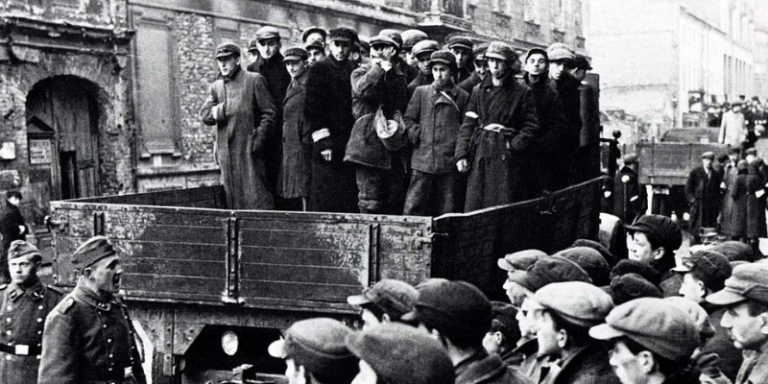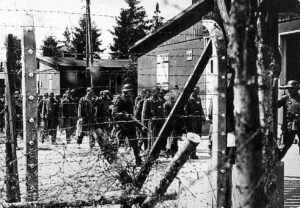Survey Says: Millennials and Gen Z Just Don’t Know the Holocaust
Why aren’t today’s youth being taught this history?
By: Andrew Moran | September 26, 2020 | 475 Words

Warsaw Ghetto. Dated 1941. (Photo by Universal History ArchiveUniversal Images Group via Getty Images)
Between 1941 and 1945, Nazi Germany, German-occupied Europe, and collaborators killed six million Jews. The Second World War genocide was the most tragic event of the 20th century. Despite this, Millennials and Generation Z lack a basic understanding of the Holocaust, according to a survey of Americans under 40.
A Shocking Survey of Holocaust Awareness
How many Jews died during the Holocaust? How many ghettos and death camps were installed across Europe? Who was responsible? These are the basic questions that a concerning number of Millennials and Generation Zers cannot answer.
The study revealed that 63% of survey participants were unaware that six million Jews were killed in the Holocaust. Thirty-six percent of those who said they knew about the Holocaust thought two million or fewer Jews were murdered. Despite 40,000 concentration camps and ghettos, close to half of polling respondents could not name any.
Moreover, 19% thought it happened in the First World War, 2% believed it occurred in Vietnam, and 1% said it unfolded in the Civil War.
Nearly 20% of Millennials and Gen Z in New York think the Jews caused the Holocaust. The state that scored the highest in Holocaust awareness was Wisconsin, while Arkansas scored the lowest.
In the end, 59% of U.S. Millennials and Gen Z think something like the Holocaust could transpire again.
But it was not all bad news. Although 70% say fewer people care about the Holocaust today than they used to, the poll found that 80% said it was important to continue teaching about the Holocaust. Sixty-four percent of Millennials and Gen Z think Holocaust education should be mandatory in school.

(Photo by ullstein bild/ullstein bild via Getty Images)
The Holocaust: A Primer
When Hitler rose to power in the early 1930s, he set up concentration camps to imprison political adversaries and so-called undesirables. The very first was Dachau, which was installed in March 1933. Ghettos became prevalent across Europe. By 1939, after Germany conquered Poland, Berlin established thousands of camps throughout Europe. The most well-known ones were Auschwitz, Bergen-Belsen, Buchenwald, Mauthausen, and Warsaw.
German officials agreed to the “Final Solution to the Jewish Question,” an official state policy of exterminating Jews. These lethal campaigns involved other groups, including religious dissidents, ethnic Poles, and the disabled.
To this date, it is estimated that six million Jews were murdered. When you factor in the other victims, the Nazis’ campaigns killed more than 11 million people.
Will We Learn from History?
Concentration camps will always be synonymous with the Nazis’ death camps and the Soviet Union’s Gulags. Unfortunately, concentration camps are still alive today. Communist China has imprisoned the Uighurs, North Korea has built dozens of re-education centers throughout the country, and Sri Lanka has placed tens of thousands of Tamils in detention camps. Will the world learn from history? Or is the planet doomed to repeat the tragedies of the past?
















